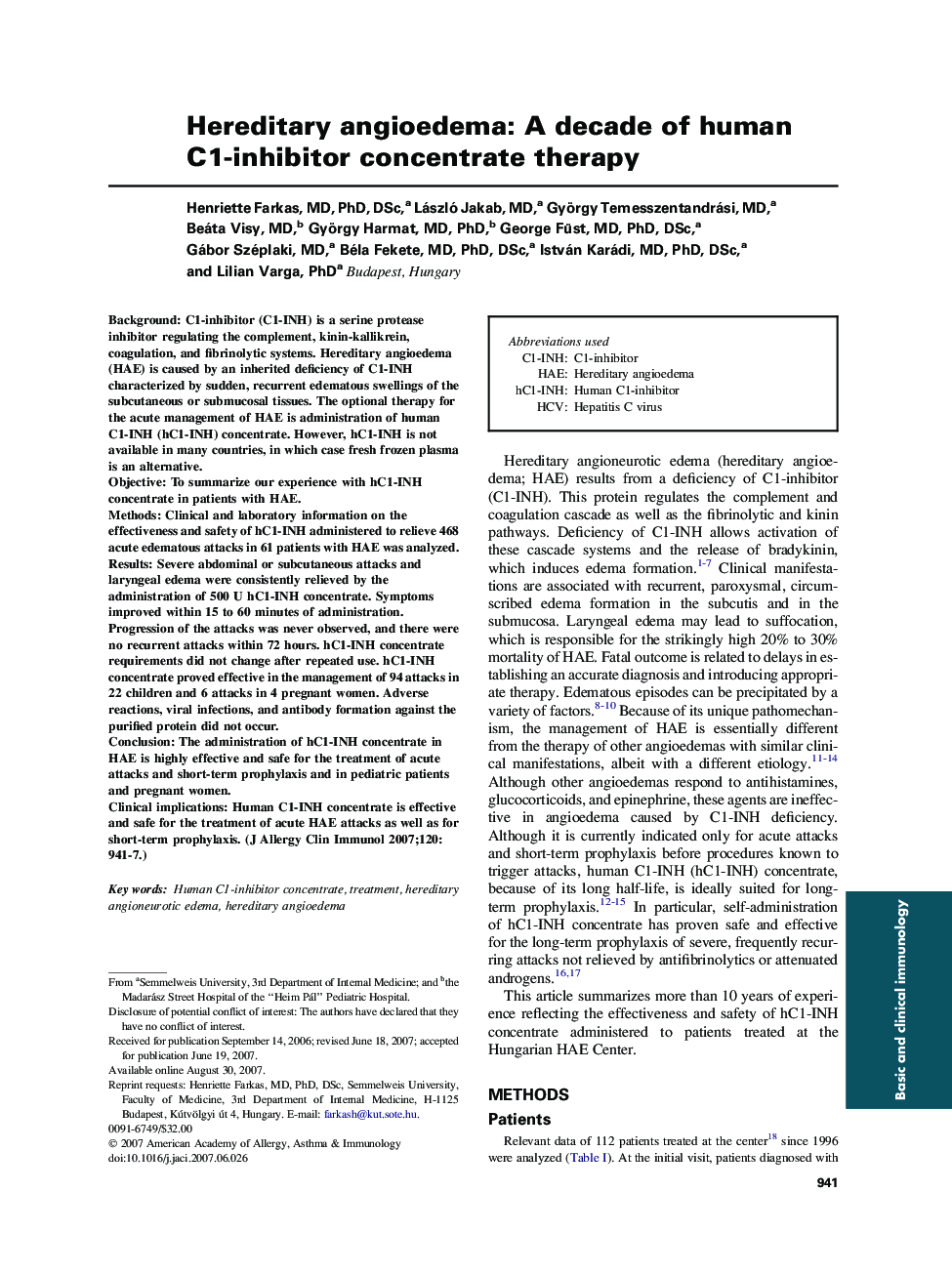| Article ID | Journal | Published Year | Pages | File Type |
|---|---|---|---|---|
| 3203210 | Journal of Allergy and Clinical Immunology | 2007 | 7 Pages |
BackgroundC1-inhibitor (C1-INH) is a serine protease inhibitor regulating the complement, kinin-kallikrein, coagulation, and fibrinolytic systems. Hereditary angioedema (HAE) is caused by an inherited deficiency of C1-INH characterized by sudden, recurrent edematous swellings of the subcutaneous or submucosal tissues. The optional therapy for the acute management of HAE is administration of human C1-INH (hC1-INH) concentrate. However, hC1-INH is not available in many countries, in which case fresh frozen plasma is an alternative.ObjectiveTo summarize our experience with hC1-INH concentrate in patients with HAE.MethodsClinical and laboratory information on the effectiveness and safety of hC1-INH administered to relieve 468 acute edematous attacks in 61 patients with HAE was analyzed.ResultsSevere abdominal or subcutaneous attacks and laryngeal edema were consistently relieved by the administration of 500 U hC1-INH concentrate. Symptoms improved within 15 to 60 minutes of administration. Progression of the attacks was never observed, and there were no recurrent attacks within 72 hours. hC1-INH concentrate requirements did not change after repeated use. hC1-INH concentrate proved effective in the management of 94 attacks in 22 children and 6 attacks in 4 pregnant women. Adverse reactions, viral infections, and antibody formation against the purified protein did not occur.ConclusionThe administration of hC1-INH concentrate in HAE is highly effective and safe for the treatment of acute attacks and short-term prophylaxis and in pediatric patients and pregnant women.Clinical implicationsHuman C1-INH concentrate is effective and safe for the treatment of acute HAE attacks as well as for short-term prophylaxis.
